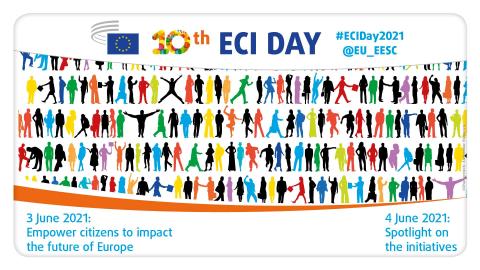European Economic
and Social Committee
"Only by increasing its impact will the ECI be able to reconnect the EU with its citizens"
The 10th ECI Day, dedicated to the European Citizens' Initiative, took place exceptionally online and over two days. EESC president Christa Schweng, European Commission Vice-President Věra Jourová and European Parliament Vice-President Pedro Silva Pereira assessed the state of this unique instrument of participatory democracy.
In her introductory remarks, Ms Schweng stressed that one key feature of every participatory process is its impact: "A lack of impact can create disenchantment, disengagement and frustration among citizens." She added: "It is only by increasing its impact that the ECI will become a strong tool that is able to reconnect the EU with its citizens."
So far, only six initiatives have managed to reach the required signature thresholds since 2012 and their impact has been quite limited and late in coming. However, there are reasons for optimism because 2021 saw the first two pieces of legislation inspired by ECIs take effect: the Drinking Water Directive, which was influenced by the Right2Water initiative, and the so-called Transparency Regulation, which is a follow-up to the Ban glyphosate initiative.
In her video message, Ms Jourová drew attention to the changes and improvements introduced by the new ECI Regulation, which entered into force in January 2020. She then explained that the real impact of ECI initiatives goes beyond legislative follow-up: "Even initiatives that do not reach the final formal steps of the process can have multiple impacts," she said. "From the moment citizens start an ECI, they bring the issue they care about into the public space. And this generates awareness and produces effects."
Mr Silva Pereira said that the European Parliament was still leading the debate on how to raise awareness of the ECI and how to improve the way it works: "It is important to ensure that if an initiative manages to reach the final stage, it is taken seriously into consideration and addressed properly." (na)
